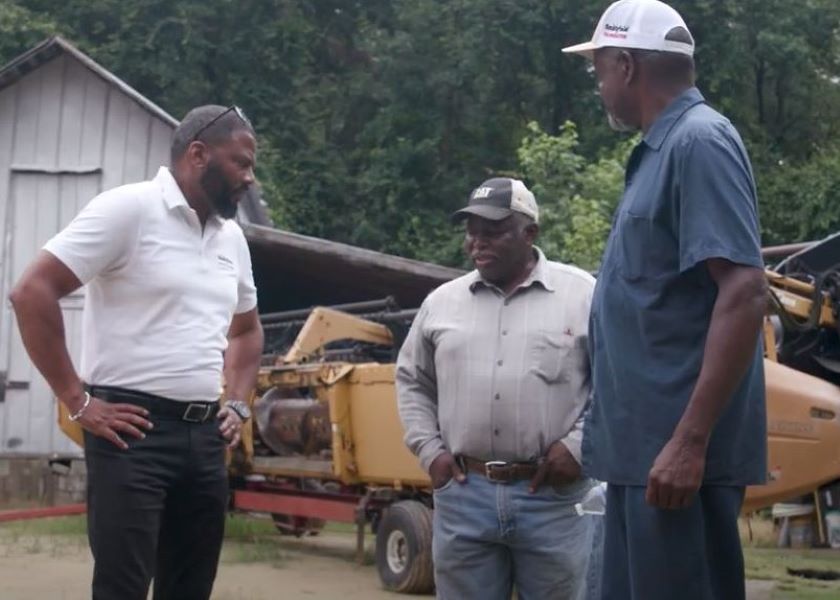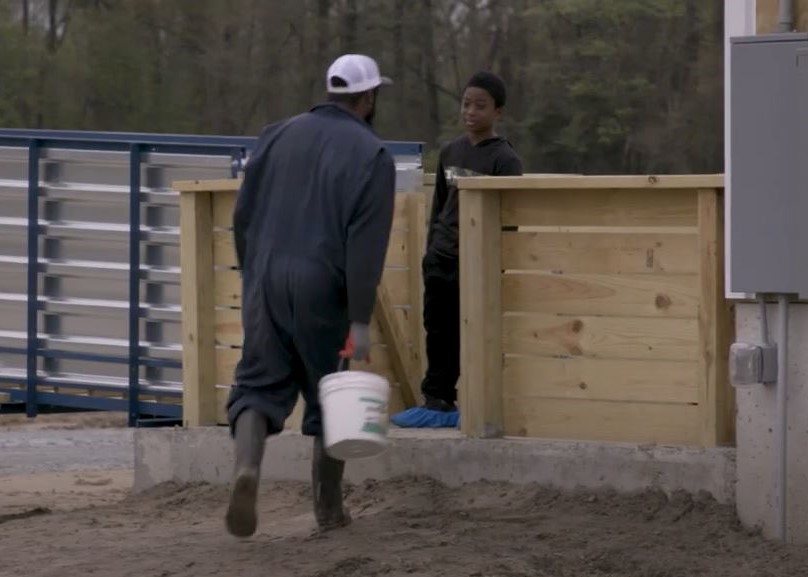Pipeline of Opportunity: Smithfield Removes Barriers to Hog Farm Ownership

When Harry Martin escaped from slavery and enlisted in the Union Army during the Civil War as a member of the 135th U.S. Colored Troops, little did he know the legacy he was about to establish for generations to come when he returned home to Wayne County, N.C.
He worked the land for years until he was able to purchase land of his own. After his death, those acres were passed on to each one of his children and has been in the Martin family ever since.
“Our goal is that this family farm stays in the family forever. In order for you to keep it going, you have to know where you've come from. So that, to me, is why I think it's so important we continue to share the family story,” says Elizabeth Martin Meggett of Martin Family Farms in a new documentary that launches today.
Her brother, Larry Martin, has led farm operations for Martin Farms since 1986. In 2011, the family lost their ability to raise hogs after a weather event destroyed their hog barn.
“Larry’s farm had collapsed over the years. It was in complete ruin,” says Steve Evans, director of community development at Smithfield Foods. “It was going to have to be rebuilt.”
Access to capital continues to be a challenge for minority farmers, says Larry Martin. Source: YouTube
Fair Access to Opportunity
But rebuilding wasn’t going to be possible on their own. From 1978 to 2000, North Carolina lost 67% of its Black farmers, explains Archie Hart, special assistant at the North Carolina Department of Agriculture. During that same period, they also lost 70% of their land, about 400,000 acres.
“Opportunities just were not presented to minority farmers at the same pace that they were to other farmers at that time, and even still now opportunities are rare for minority farmers,” Larry says.
One of the main hold-ups for most is access to capital.
“If somebody doesn’t come along that’s willing to help you, it's hard to do this on your own,” he says.
Evans believes the Martin family’s story is one of many.
“I began to realize a lot of our farms were not minority-owned, but they were minority-managed and so my thought was if these are individuals who can manage these farms, why are they not able to also own them or have some ownership ability?” Evans says. “Our leadership team supported this conversation about building out pipelines of opportunity.”
That's how Smithfield’s new farmers program launched, with a focus of removing barriers such as access to capital and cost of capital, which are often the biggest impediments for minority farmers coming to the industry, Evans explains.
The Martins are the first family farmers to participate in this new contract grower program by Smithfield Foods to support Black and other minority farmers and diversify its hog supply chain. The program is part of a $15 million Unity & Action commitment Smithfield has made to further diversity, equity and inclusion in food manufacturing, agriculture and education.
“We were able to come in, rebuild that farm and get it up and operational to where it's an existing asset now for Larry and his family,” Evans says.
According to the USDA, minority farmers represent just 5% of farmers in America and less than 2% identify as Black. Smithfield’s new contract grower initiative to promote equity in agriculture has enabled the Martin family to return to their legacy of hog farming and will empower additional minority farmers to enter or re-enter the industry.
“There are a whole lot of other Larrys out there,” Hart says. “These guys don't want a hand-out. They just want fair access.”
Farming the Way It Should Be
Joyce Martin Bowden of Martin Family Farms says their farm has always had livestock and produce until the storm destroyed their hog barns.
“When I was growing up, we had hogs, milk cows, chickens, and now we're back to having hogs again, which is wonderful. It is the way it should be. I think all of it is important in having sustainable agriculture,” Joyce says.
Andre Martin, Larry’s son, used to help with the hogs when he was younger, but says he needs to learn how to use the new automated barn system. He’s excited to be able to expand their farming operation once again.
“Hopefully this will allow me to leave something for my son or whoever decides to pick it up. That's pretty much what we're shooting for here and we're just glad Smithfield was able to back us on that deal,” Andre says.
In the documentary, Larry admits this opportunity probably means more to him than the next person because of Harry Martin’s legacy.
“My blood is here. My life is here,” Larry says. “It means a lot to me to be able to pass this on to the next generation. That's why we've maintained it over the years so we could pass it down to somebody else.”
Andre Martin, left, hopes to be able to pass the opportunity to farm on to his son someday. Source: YouTube
Setting Farmers Up for Success
Smithfield’s grassroots program focuses the company’s efforts in North Carolina – home to Smithfield’s largest operational footprint and nearly a quarter of its U.S. employees – and will be expanded to include additional communities where its farms are located. By the end of the 2021, Smithfield expects to have signed at least three more minority farmers to the program.
“We all learned a lot about how to be more supportive in developing out this work, how to be more inclusive in terms of bringing more people into the conversation and also how to listen to Larry, someone who had the experience and knowledge of this industry,” Evans says. “What did he need and what best suited his ability to be successful in this space?”
To watch the documentary and learn more about Smithfield’s Unity & Action commitments, visit smithfieldfoods.com/unityandaction.
More from Farm Journal's PORK:
Overcomer: From the Streets to the Sow Barn
Untold Stories: The Call That Saved One Hog Producer's Farm
Pig Farmers: Are We Going to Produce Food in the U.S. or Not?









